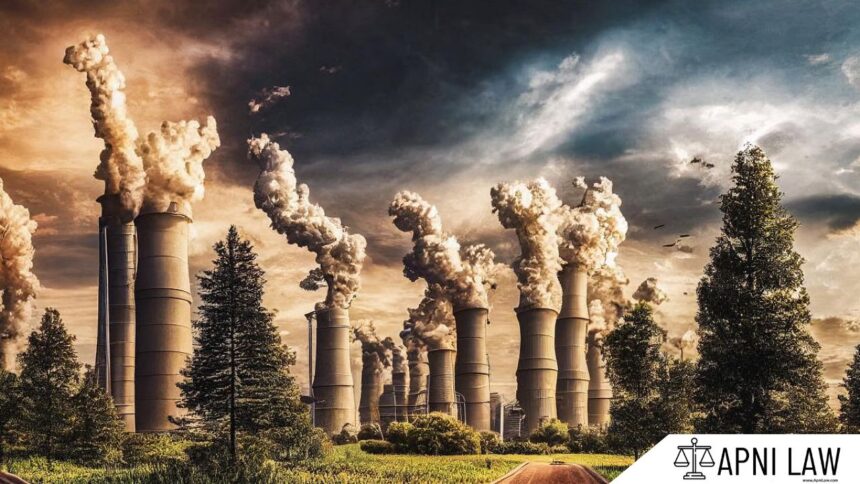Introduction
Environmental pollution poses a significant threat to public health and natural ecosystems. In India, individuals and organizations that cause environmental damage can be held legally accountable under various environmental laws and regulations. The legal framework includes penalties, fines, and even imprisonment for violations. Understanding these liabilities helps ensure compliance and promotes responsible environmental practices.
Legal Framework Governing Environmental Liability
- The Environment (Protection) Act, 1986: Grants the central government authority to take measures to protect and improve the environment. Empowers authorities to penalize individuals and organizations responsible for environmental pollution.
- The Air (Prevention And Control Of Pollution) Act, 1981: Regulates air pollution by setting emission standards. Industries and individuals violating these standards can face fines and operational restrictions.
- The Water (Prevention And Control Of Pollution) Act, 1974: Prohibits the discharge of pollutants into water bodies beyond permissible limits. Industries found polluting water sources may face heavy fines or closure.
- The Public Liability Insurance Act, 1991: Mandates industries handling hazardous substances to obtain insurance coverage. Ensures compensation for individuals affected by industrial pollution.
- The National Green Tribunal (NGT) Act, 2010: Establishes a specialized tribunal for speedy disposal of environmental cases. Empowers the tribunal to impose fines, order compensation, and direct corrective actions.
- The Hazardous Waste (Management And Handling) Rules, 1989: Regulates the safe disposal and management of hazardous waste. Organizations mishandling hazardous waste may face severe penalties.
Forms Of Environmental Liability
- Civil Liability: Individuals and organizations may be required to compensate victims of environmental damage. Courts can direct polluters to undertake environmental restoration measures.
- Criminal Liability: Violations of environmental laws can result in imprisonment and fines. Repeat offenders may face stricter penalties, including the cancellation of business licenses.
- Strict Liability And Absolute Liability: Under the principle of strict liability, industries causing environmental harm are held responsible, even if there was no negligence. Absolute liability, established by the Supreme Court in the Oleum Gas Leak case (MC Mehta v. Union of India), imposes liability on industries dealing with hazardous substances without any exceptions.
Consequences Of Environmental Violations
- Financial Penalties – Companies may face heavy fines imposed by pollution control boards or the National Green Tribunal.
- Operational Restrictions – Polluting industries may face suspension or closure orders.
- Imprisonment – Severe violations may result in criminal prosecution and jail terms.
- Compensation To Victims – Courts may order polluters to compensate affected individuals and communities.
- Reputation Damage – Organizations found guilty of environmental violations may suffer brand damage and loss of consumer trust.
How To Ensure Compliance With Environmental Laws
- Adopt Eco-Friendly Practices – Use cleaner technologies and reduce waste generation.
- Obtain Necessary Environmental Clearances – Businesses must ensure compliance with environmental regulations before starting operations.
- Implement Waste Management Systems – Proper disposal of hazardous and industrial waste is crucial.
- Conduct Environmental Audits – Regular audits help identify and rectify environmental risks.
- Raise Awareness – Educating employees and stakeholders about environmental laws helps prevent violations.
Conclusion
Both individuals and organizations have a legal and ethical responsibility to prevent environmental pollution. The Indian legal framework imposes strict liabilities to ensure accountability and environmental protection. By complying with environmental laws and adopting sustainable practices, businesses and individuals can contribute to a cleaner and healthier environment.








